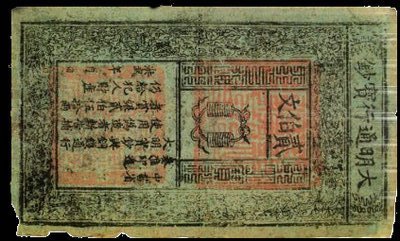Here’s our next instalment of things that happened in ..25 years of yore.
Some Notable Events in 1325
7 January. Afonso IV becomes the new King of Portugal upon the death of his father, King Denis I.
9 March. Queen Isabella, wife of King Edward II of England and sister of King Charles IV of France, departs from England on a mission to Paris to mediate an end to the war between the two kingdoms. She is directed to return to England by midsummer.
31 March. A truce is signed between King Edward II of England (who is also Duke of Aquitaine) and King Charles IV of France to end the war of Saint-Sardoso under terms negotiated by England’s Queen Isabella; Edward cedes Agenais (part of modern-day Lot-et-Garonne) and pledges to swear homage to King Charles from then on as a condition of keeping the rest of Aquitaine. England is allowed to reclaim Ponthieu and the Duchy of Gascony if Edward will come to Paris to
pay him homage. Isabella, unhappy with her marriage to Edward, remains in France indefinitely.
20 April. Elizabeth de Comyn, daughter of the late Guardian of Scotland, John Comyn III of Badenoch, is forced to sign away title to her properties at Painswick and at Goodrich Castle to Hugh Despenser the Elder after being kidnapped in 1324 and imprisoned at Pirbright.
5 May. The Istrian Demarcation, setting out the boundaries of disputed Italian territories in the Adriatic Sea peninsula of Istria, confirms the agreement between the Independent Italian states of Aquileia, Gorizia, and the Venetian Republic. The document is published in three languages (Latin, German and Croatian).
14 June.(2 Rajab 725 AH). Ibn Battuta, Moroccan scholar and explorer, sets off from Tangier on a hajj to Mecca. En route, he travels to Tlemcen, Béjaïa and Tunis. For safety, Ibn Battuta joins a caravan to reduce the risk of being robbed. On the way, he takes a bride in Sfax, but soon leaves her due to a dispute with her father. Traveling more than any other explorer before the modern era, he will travel an estimated 73000 miles over 30 years, more than three times as much as Marco Polo.
12 September. Edward II is persuaded not to go to France by Hugh Despenser the Elder, his chief adviser. He decides to send his 12-year-old son, Prince Edward of Windsor, to Paris to pay homage instead. Before the young Edward departs, he is bestowed with the title of
Count of Ponthieu.
21 September. Isabella of France conspires with the exiled Roger Mortimer to have Edward II deposed. To build up diplomatic and military support, Isabella has Edward of Windsor engaged to the 12-year-old Philippa of Hainault. She is the daughter of Count William of Hainaut, who is married to Joan of Valois, granddaughter of the late King Philip III of France.
24 September. Edward, Prince of Wales pays homage to King Charles IV of France on behalf of his father, King Edward II of England.
10 October. King Edward II calls for representatives of the three estates (including the knights representative) to meet at Westminster for a session of the English Parliament, beginning on 18 November to discuss the matter of the failure of his wife, Queen Isabella, to return from France.
21 November. Yuri III Danilovich, Grand Duke of Moscow, is assassinated by Dmitry of Tver, Grand Duke of Vladimir. Yuri’s younger brother, Iván I Danilovich Kalitá, the Grand Duke of Vladimir, inherits Yuri’s throne and relocates the spiritual capital of the Russian people to Moscow by directing the Metropolitan Peter to move his episcopal see from Kiev. The decision gradually makes Moscow the political center of Russia.
1 December. King Edward II of England makes one final attempt to save his marriage to Queen Isabella, and sends her a letter ordering her to return from France to England immediately, writing that “Oftentimes have we informed you, both before and after the homage, of our great desire to have you with us, and of our grief of heart at your long absence,” and adds that he is aware of her affair with Roger Mortimer and that “ceasing from all pretenses, delays and excuses, you come to us with all the haste you can.” She declines to return.
Some Notable Events in 1425
9 December. The Old University of Leuven, Belgium is founded.
Unknown Date. Beijing, capital of China, becomes the largest city in the world, taking the lead from Nanjing.
Unknown Date. Paper currency in China is worth only 0.025% to 0.0l4% of its original value in the 14th century; this, and the counterfeiting of copper coin currency, will lead to a dramatic shift to using silver as the common medium of exchange in China.
